Listing of events tagged with Speaker
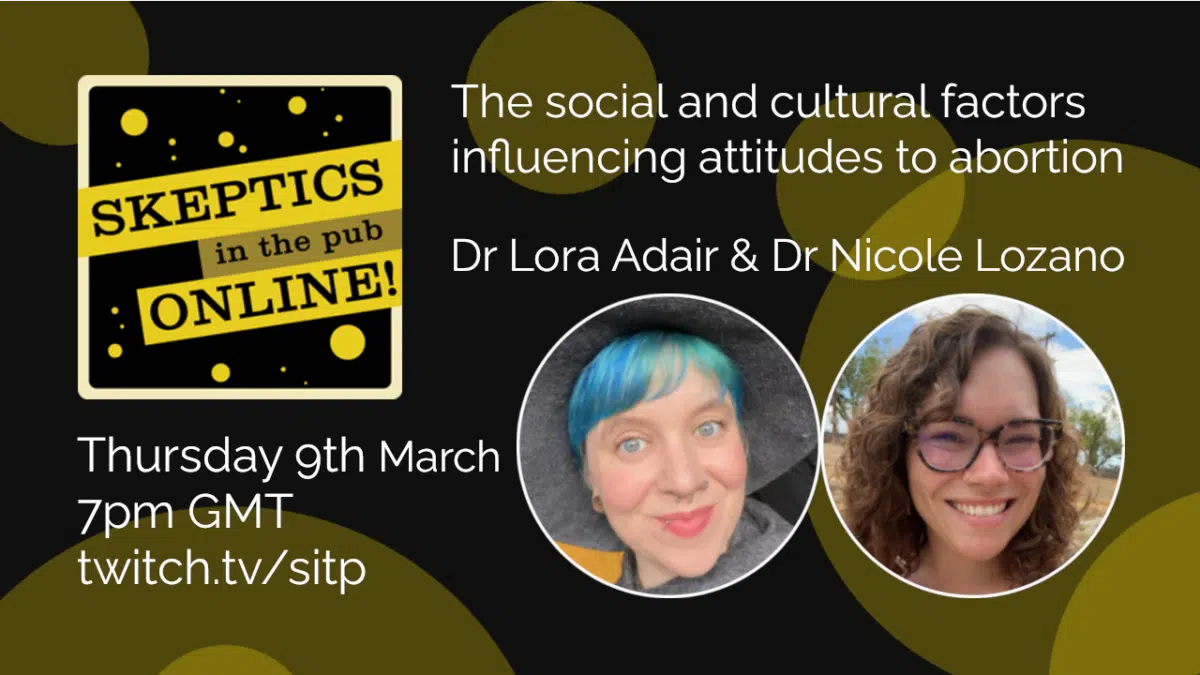
The social and cultural factors influencing attitudes to abortion – Dr Lora Adair and Dr Nicole Lozano
Scientific approaches to understanding reproductive choice typically position decision-makers as rational. What is missing is a description of the internal, psychological process when someone is making a choice about their reproduction, their family constellation, and their future. Are these choices rational? Do people really view children as a calculus of financial gains and losses? We explore these questions by emphasising the role that our social world plays in shaping our reproductive decisions and attitudes.
This event will be online, on the Skeptics in the Pub Twitch channel.
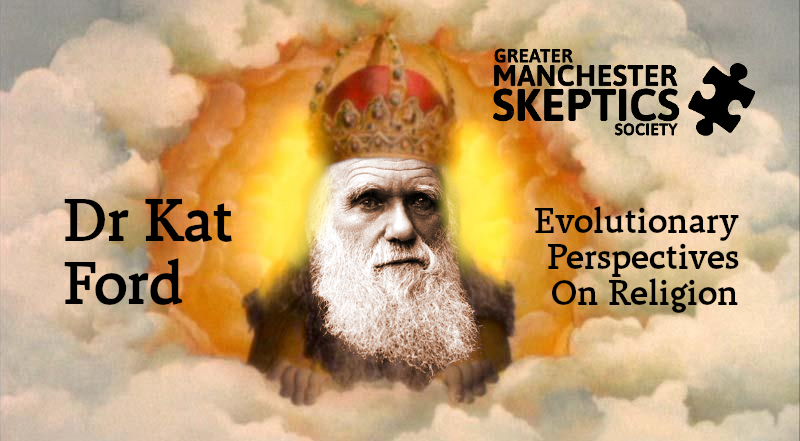
Evolutionary Perspectives On Religion — Dr Kat Ford
From an evolutionary perspective, religion presents something of a challenge. It is ubiquitous, but can be costly, while serving no obvious function. Is it just a collection of highly successful memes? Is it an inevitable but largely benign by product of minds highly evolved for social living? Or are there some real evolutionary benefits to religious cognition?
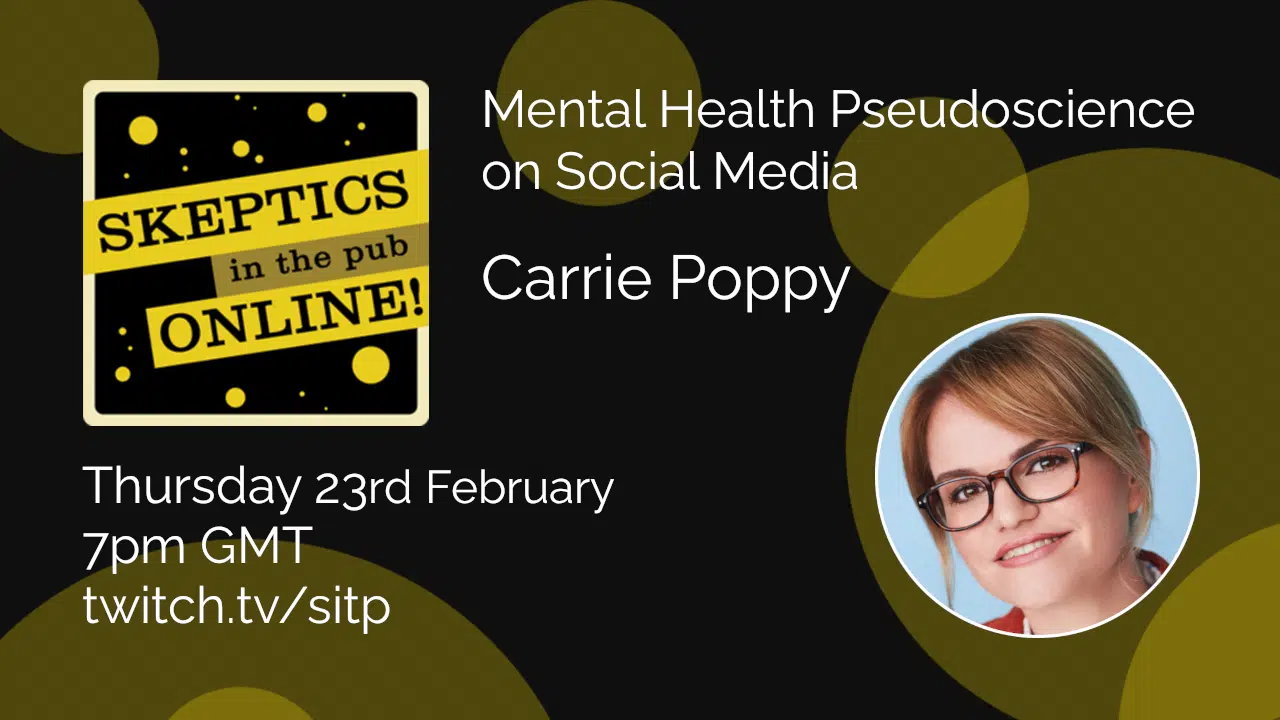
Mental Health Pseudoscience on Social Media – Carrie Poppy
Trauma, gaslighting, narcs, multiple personalities, and the rest of the human mind. Where better to learn about these things than TikTok, Instagram and Twitter? Carrie Poppy (Oh No, Ross and Carrie) takes you on a tour of some of the most popular social media pseudoscience, how to spot it, and what you can say when you see it.
This event will be online, on the Skeptics in the Pub Twitch channel.
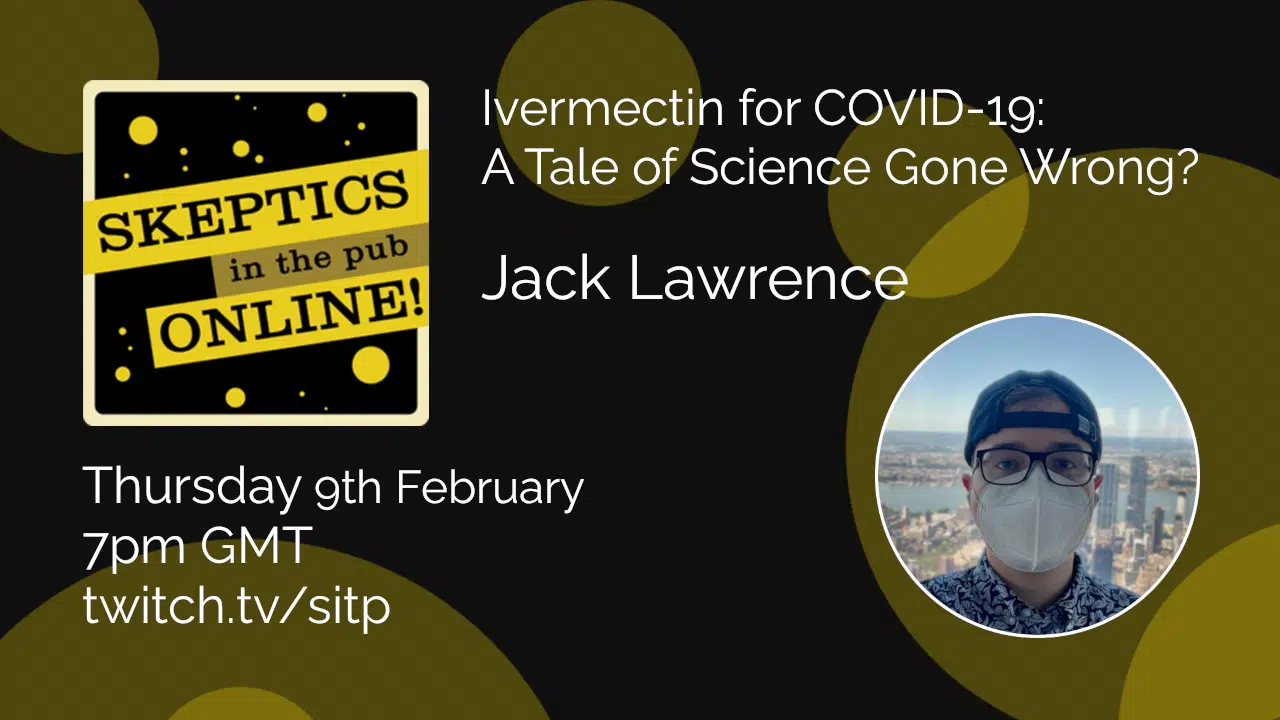
Ivermectin for COVID-19: A Tale of Science Gone Wrong? – Jack Lawrence
If you missed our Ivermectin talk with Jack Lawrence, then good news — he's giving the talk for Skeptics in the Pub Online.
This event will be online, on the Skeptics in the Pub Twitch channel.
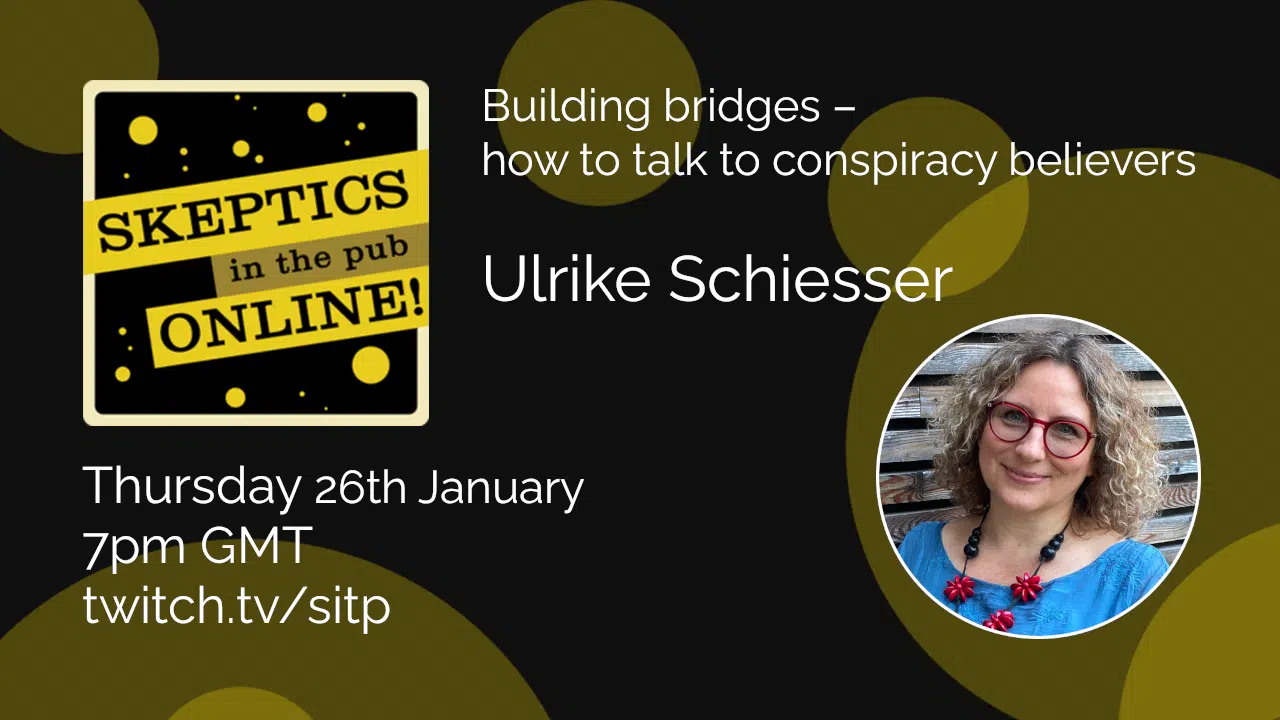
Building bridges – how to talk to conspiracy believers – Ulrike Schiesser
In the last two years conspiracy theories seemed to have spread even to people we would never have expected to be susceptible. We lost friends, saw family members drifting away and experienced an increasing radicalization. How can we connect despite such different world views?
This event will be online, on the Skeptics in the Pub Twitch channel.

The Skeptics’ Guide to Vexillology – Dr Tom Williamson
Flags! They’re everywhere, from battlefields to Pride marches to the World Cup. But what secrets and mysteries do flags hold? Why do some people get upset if you say Union Flag instead of Union Jack? Are remainers right when they say they want their star back?
This event will be online, on the Skeptics in the Pub Twitch channel.
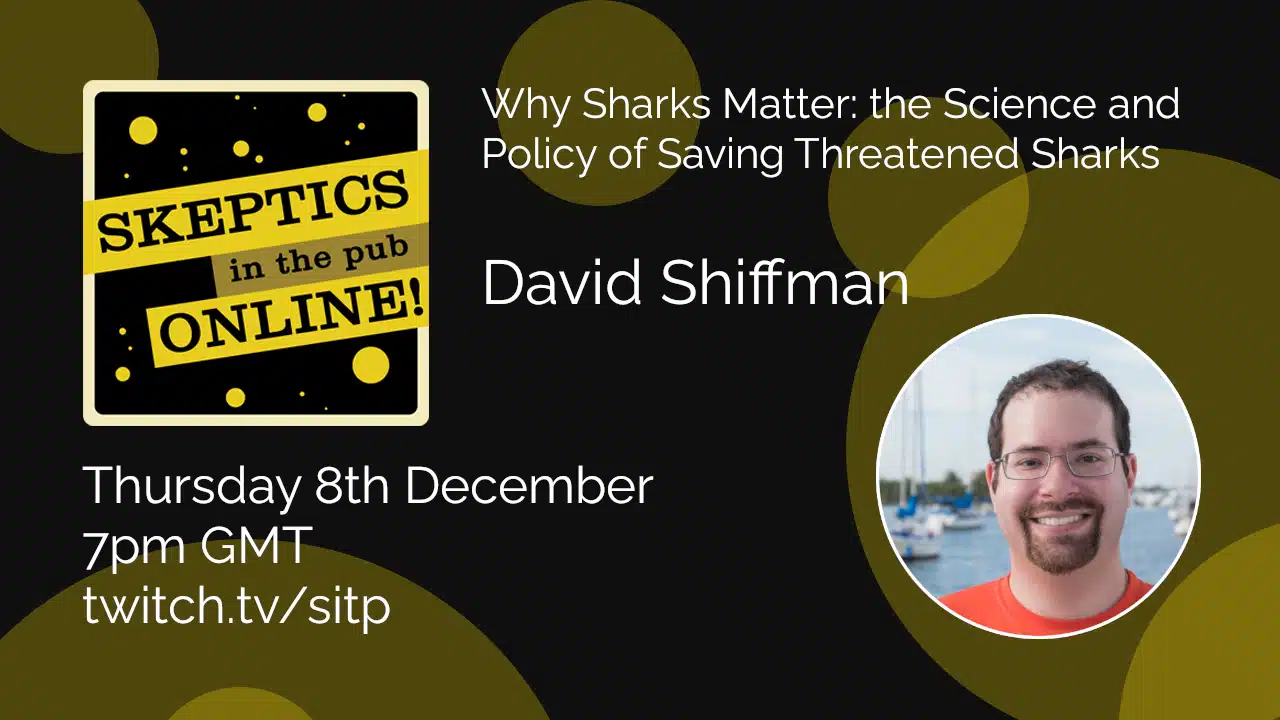
Why Sharks Matter: the Science and Policy of Saving Threatened Sharks – Dr David Shiffman
Sharks are some of the most fascinating, most ecologically important, most threatened, and most misunderstood animals on Earth. More often feared than revered, their role as predators of the deep have earned them a reputation as a major threat to humans. But the truth is that sharks are not a danger to us — they’re in danger from us.
This event will be online, on the Skeptics in the Pub Twitch channel.
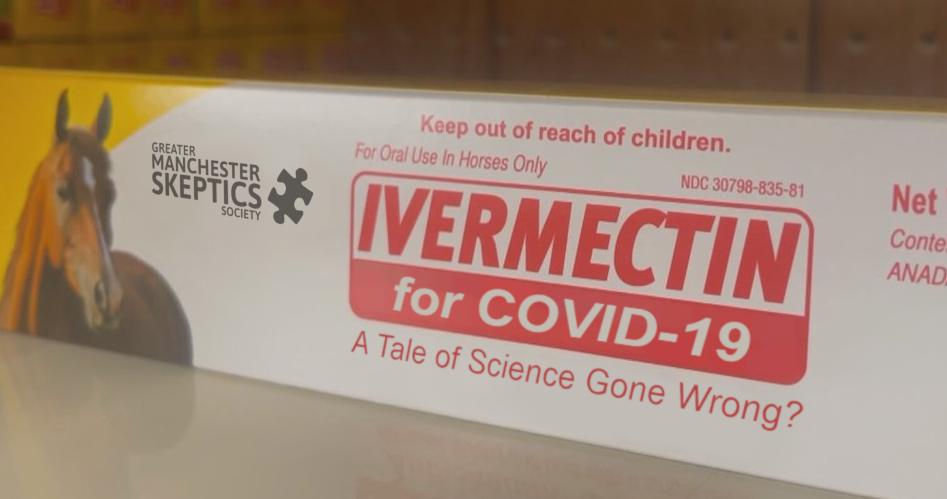
Ivermectin for Covid-19: A Tale of Science Gone Wrong?
The COVID-19 pandemic has been responsible for a whole host of scientific triumphs but also some failures and declining reputations. One of the pandemic’s many victims is ivermectin, an antiparasitic medication that had enjoyed a stellar reputation as a ‘wonder drug’ for decades prior. As this talk will examine, during the COVID-19 pandemic, ivermectin was trumpeted as a miracle COVID-19 cure before being revealed to have little effect.
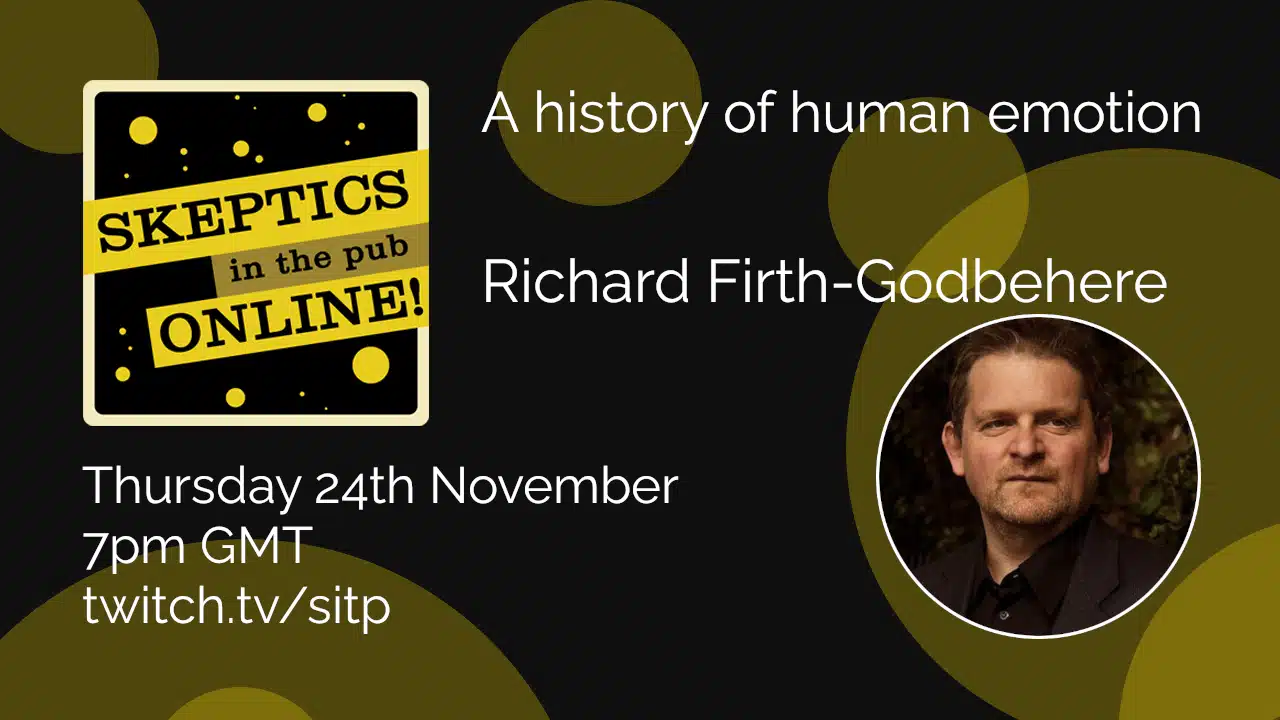
A history of human emotion – Richard Firth-Godbehere
We like to think of humans as rational creatures, who have relied on calculation and intellect to survive. But many of the most important moments in our history had little to do with cold, hard facts and a lot to do with feelings.
This event will be online, on the Skeptics in the Pub Twitch channel.
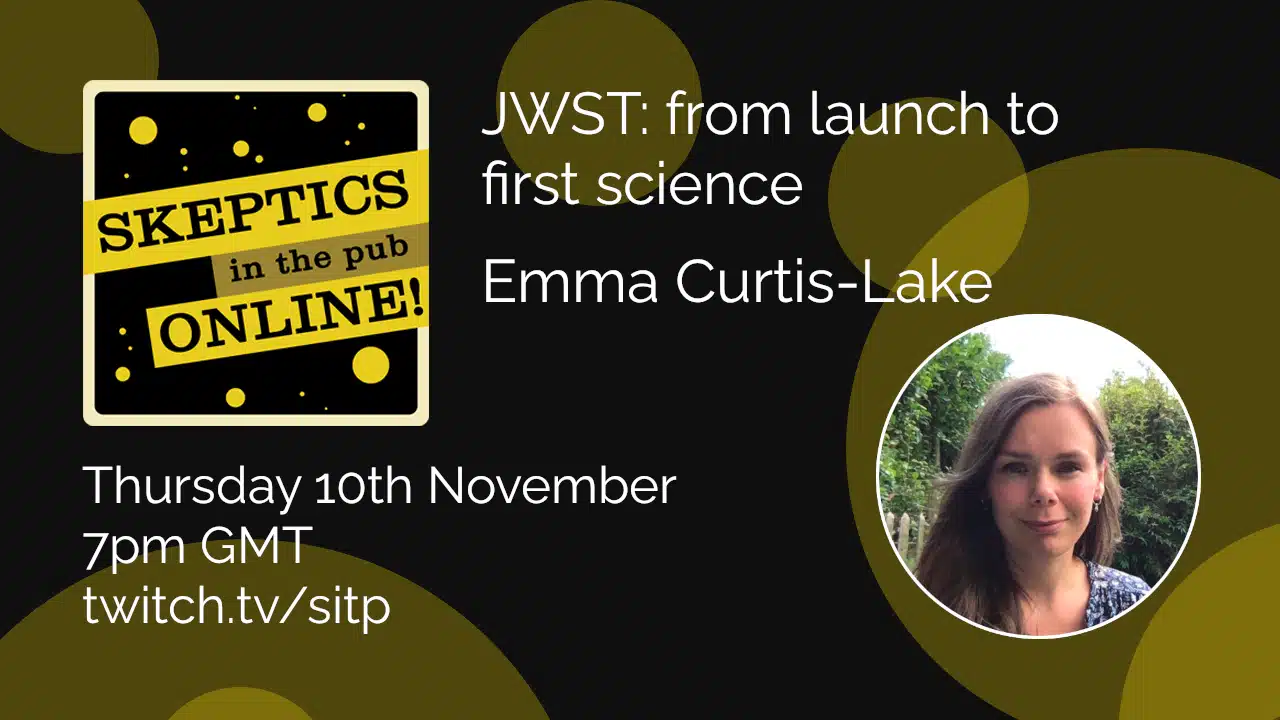
JWST: from launch to first science – Dr Emma Curtis-Lake
After an incredibly exciting release of images this summer, JWST has settled into science mode. This talk will take you on a journey from our own galaxy to the beginnings of the Universe via images from this incredible new telescope, highlighting some interesting scientific discoveries along the way.
This event will be online, on the Skeptics in the Pub Twitch channel.